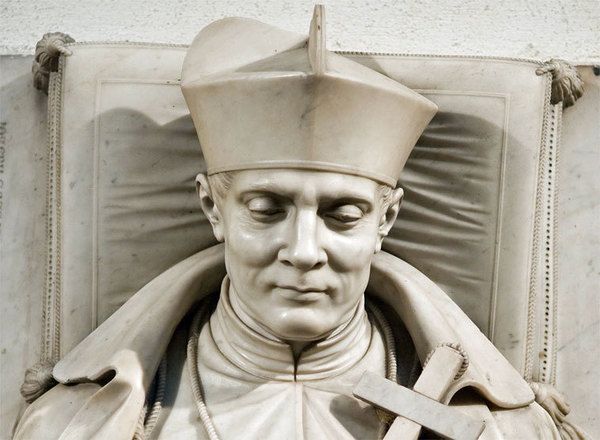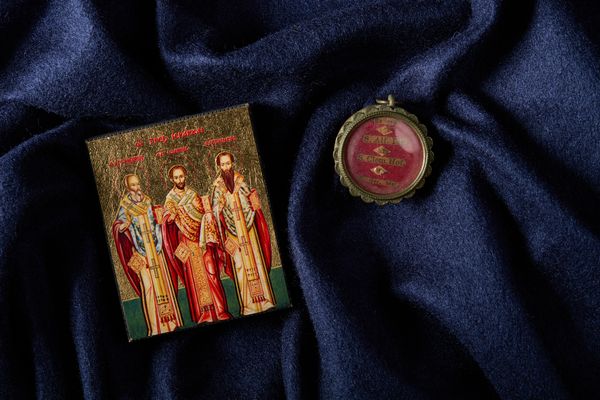Clement Mary Hofbauer CSsR (German: Klemens Maria Hofbauer) (26 December 1751 – 15 March 1820) was a Moravian hermit and later a priest of the Redemptorist congregation. He established the presence of his congregation, founded in Italy, north of the Alps, for which he is considered a co-founder of the congregation. He was greatly known for his lifelong dedication to the care of the poor during a tumultuous period of Europe's history, which left thousands in destitution. He worked to care for the Polish people, until he was expelled from there and moved to Austria.
Hofbauer has been declared a saint by the Catholic Church. Due to his extensive service in that city, he is called the Apostle of Vienna, of which he is a co-patron saint.
The Second Founder of the Redemptorists
Out of pure devotion, Saint Clement had undertaken several pilgrimages to Rome on foot in the years prior to entering the seminary. Now he made it an annual exercise, to escape the repulsive air of unorthodoxy at the university and the religious repression of the imperial state and to refresh himself spiritually in the capitol of Christendom.
It was a common practice for the two pilgrims to sleep in fields, drawing a circle about their earthen beds and invoking their guardian angels to protect them within it. In the mornings, they would attend Mass at the first church whose bells they heard. Having retired one evening in the neighbourhood of Santa Maria Maggiore, they were awakened in the very early morning by the soft pealing of a bell from the little church of San Giuliano. Upon their arrival, they realised it was a convent church but of a religious order they did not recognise. Impressed by the recollection of the Religious in their meditation, Hofbauer asked an altar boy what kind of priests these were. “They are Redemptorists,” the boy returned, adding, “and some day you, too, will be one of them.” Convinced that the astonishing oracle was a message from God, Saint Clement and his friend presented themselves to the Superior of the Convent and, with a burst of inspiration which left Huebl’s head spinning, found themselves enrolled as Redemptorists.
Monsignor Alphonsus Maria de Liguori, the Neapolitan Bishop of Agatha and the Founder of the Redemptorists, was not unknown to Clement Hofbauer. The latter saint in recent years had become an enthusiastic reader of the former’s voluminous spiritual writings — works that would eventually merit Saint Alphonsus canonical recognition as one of the 32 Doctors of the Church. But the Congregation of the Most Holy Redeemer, founded by Liguori in 1732, was scarcely known outside of Naples and not at all beyond the borders of Italy. Monsignor Liguori received with great joy the news that the first two non-Italians had entered his order in 1784. Isolated from them as he was, however, his keen interest in them as the hope of spreading the Congregation into the German kingdoms had to be taken from afar. Saint Alphonsus and Saint Clement would never meet in this life.
His first mission was to Warsaw, where he was in charge of the German church and he soon enjoyed a certain repute as a confessor and the instigator of good works to remedy the social evils of the day. Thus he founded an orphanage, a poor school and a secondary school. In 1808 the invading French cast him into prison, whence, after four weeks, he was able to go to Vienna. Here he became the inspiration and religious leader of a group of German romantics—von Muller, Schlegel, Werner and others—and exerted tremendous influence not only among the poor but also and despite his rather scanty education, with officials, statesmen and scholars. In this way he was able to defeat the project for a German national church at the Congress of Vienna and eventually succeeded in arranging for the legal establishment of the Redemptorists north of the Alps, though he did not live to see this occur, since he died in 1820.
As a consequence he is regarded by the Redemptorists as their second founder. He was a man of great energy and drive, seeing clearly the end in view and always indefatigable in his work for souls, in the confessional especially, and among the poor.
Credits:
Discriptions of saints lives and biographies have been excerpted, summarized, or compiled from
Franciscan Media,
CatholicSaints.Info,
Catholic Online, and
Wikipedia.

